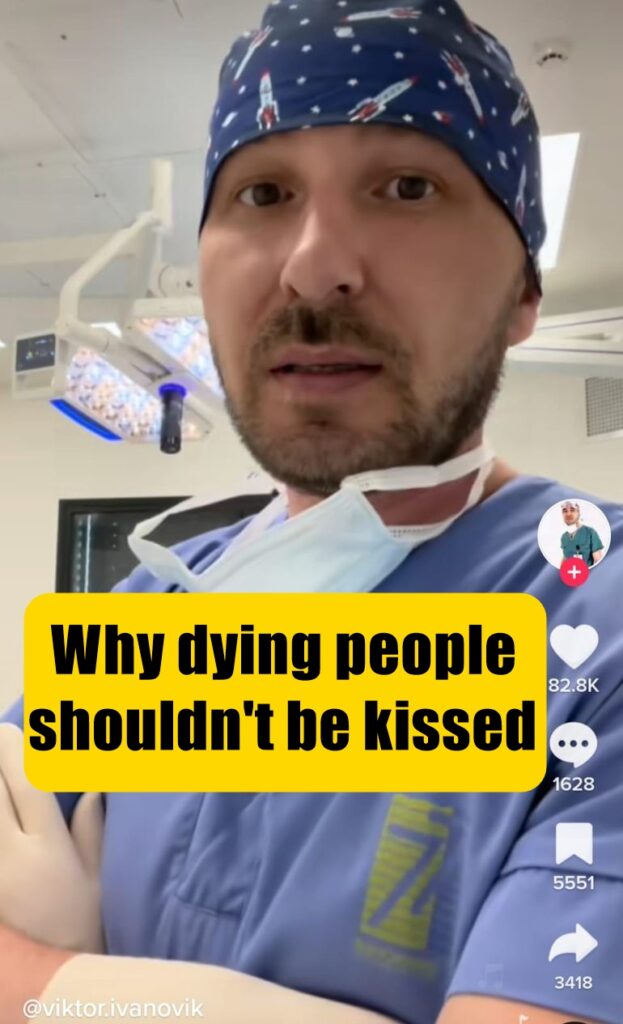
Source: Freepik
The corpse starts to disintegrate nine hours after death, according to Dr. Ivanovik. The germs from the decaying tissues begin to emerge at this phase.
He lists the considerable and nearly total loss of smell as one of the main hazards associated with exposure to these microorganisms.
His TikTok post, “Never kiss the deceased!” serves as a sobering reminder of the risks that lurk even in this most somber and personal of farewells.
Online reactions to the doctor’s video have been mixed with disagreement.
Some social media users revealed very personal views on their experiences, while many others expressed gratitude for Dr. Ivanovik’s counsel and acknowledged that they had not previously considered such hazards.
Some remarks, particularly in times of extreme sadness, highlighted the emotional challenge of following such counsel: “I kissed my father and would do it a million times over! I can lose taste and smell, he is my father!” and “Honestly, I don’t think anyone can resist not kissing their parent on the hand or forehead one last time. I kissed my father’s hand for the last time”.
These answers show how emotion, custom, and health issues interact in a complicated way during the grieving and parting process.
The film by Dr. Ivanovik has created a forum for discussion and awareness of health risks associated with funeral customs.
His observations provide a medical viewpoint on a custom that is ingrained in many people’s grieving processes.
It emphasizes how crucial it is to strike a balance between cultural and emotional customs and knowledge of their possible effects on health.
Apart from eliciting feelings and ideas regarding this delicate subject, the movie illuminates the function of social media and digital platforms in propagating essential health data.
The popularity of Dr. Ivanovik on TikTok shows how these platforms may inform and involve people in discussions about subjects that might not otherwise be discussed.
In conclusion, Dr. Viktor Ivanovik’s viral film serves as a moving warning of the hidden dangers connected to a widely used grieving ritual.
It emphasizes how important it is to carefully weigh health risks, even during highly emotional times.
While some may find it difficult to follow the advise to not kiss the dead, it offers a crucial viewpoint on the necessity of protecting oneself during such vulnerable times.
Dr. Ivanovik’s opening of this conversation is evidence of how our knowledge of health and safety procedures is changing and how important it is for medical experts to lead public awareness of these vital issues pertaining to life and death.


